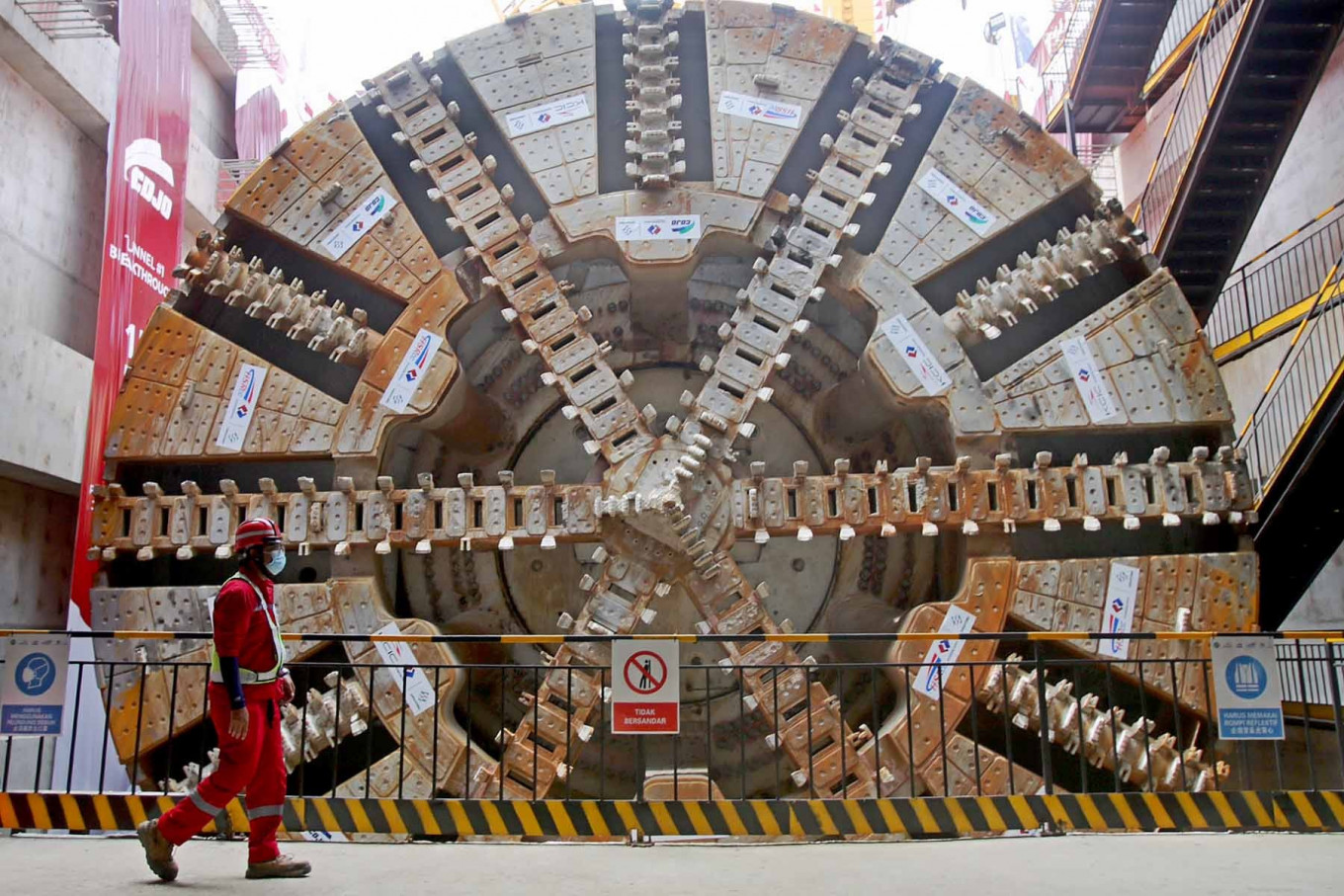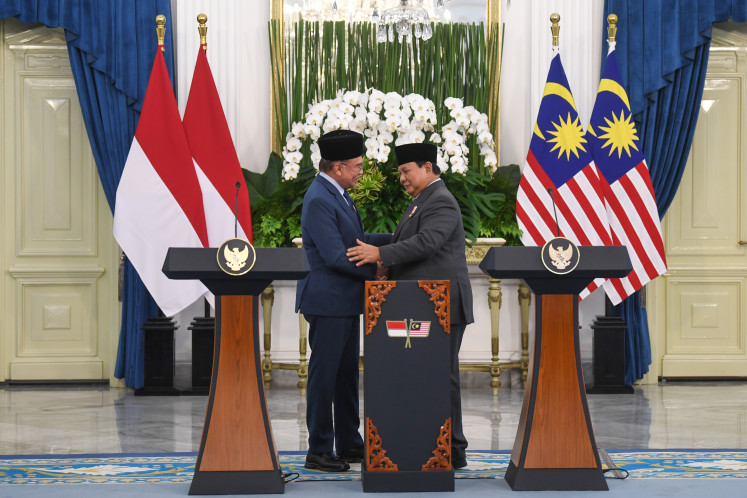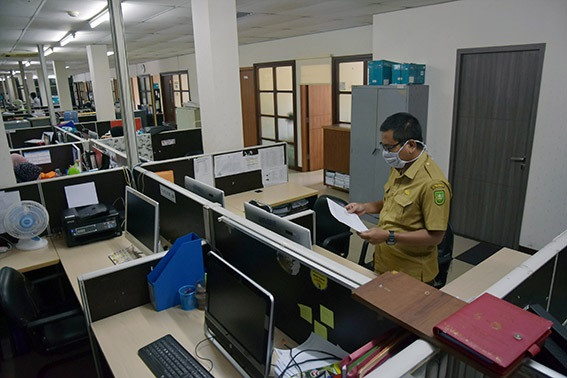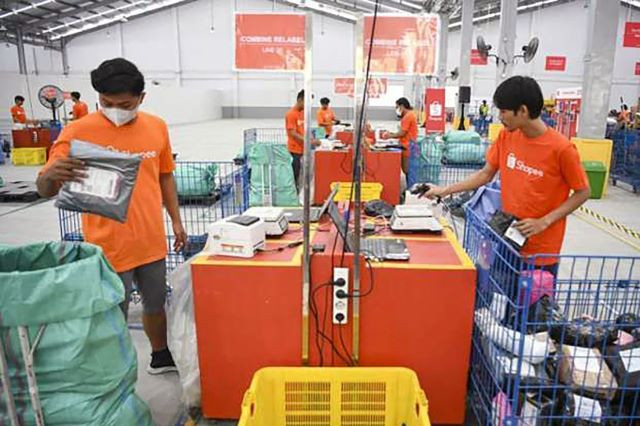Popular Reads
Top Results
Can't find what you're looking for?
View all search resultsPopular Reads
Top Results
Can't find what you're looking for?
View all search resultsJakarta-Bandung high-speed train gets bigger govt backing after cost overrun
The government can now provide loan guarantees and state capital injections to the project, which is facing a US$2 billion cost overrun.
Change text size
Gift Premium Articles
to Anyone

A
new regulation allows the government to guarantee the Jakarta-Bandung high-speed railway project, better ensuring the completion of the nationally strategic, but grossly over-budget, Chinese-Indonesian infrastructure project.
Presidential Regulation No. 93/2021, which came into effect on Oct. 6, allows the government to use the state budget to help finance the project, whether through a loan guarantee or a state capital injection. Using a single rupiah from the state budget for the project was forbidden under the preceding regulation passed in 2015.
The regulatory change comes as the project’s budget had overran by Rp 27.17 trillion (US$1.9 billion) to Rp 113.9 trillion as of September, which the State-Owned Enterprises (SOEs) Ministry has acknowledged was due to land acquisition problems, overoptimistic planning and poor project management.
“Like it or not, we have to ask the government to participate in providing funding,” SOEs Ministry spokesman Arya Sinulingga said in a voice recording statement on Sunday.
“We want the project to finish in time, not be delayed.”
He also blamed COVID-19 for the change of policy, saying the pandemic had shrunk the cash flow of many construction SOEs involved in the project.
Read also: KAI to lead Indonesian side in high-speed rail project with China
Arya went on to say that the government would wait for the Development Finance Comptroller (BPKP) to finish a project audit in December before calculating how much state funding would be allocated to save the high-speed railway project, as per the regulation.
The Jakarta-Bandung high-speed train, designed to travel at 350 kilometers per hour, is meant to cut down the travel time between the two major cities to around 45 minutes from the current three hours. Developers currently aim to have the train operational by 2022-end.
The high-speed train is owned by joint venture company PT Kereta Cepat Indonesia China (KCIC), which is 40 percent owned by a consortium of Chinese companies and 60 percent owned by a consortium of four Indonesian SOEs. The latter consortium is named PT Pilar Sinergi BUMN Indonesia (PSBI).
“The government’s commitment would be a key foundation to acquire core investment or debts needed by the project,” said University of Indonesia economist Fithra Faisal on Monday.
He opined that the project’s costs would likely be higher if it was stalled, but also that a thorough project examination was necessary to prevent more delays and overruns after the intervention.
Meanwhile, Center of Reform on Economics (CORE) executive director Mohammad Faisal told the Post on Monday that the intervention could disincentivize SOEs from becoming more efficient as they become more reliant on government funding.
He also raised concern that the intervention “would become a bad precedent in the future” as SOEs rely on government funding to save over budget projects.
Read also: Indonesia owes $17.28 billion ‘hidden debt’ to China: Study
The new presidential regulation also introduces several changes to expedite the project, namely restructuring the Indonesian state-owned consortium behind the project, changing the railway’s route, and appointing a new regulatory body to oversee the project.
Firstly, railway operator PT Kereta Api Indonesia (KAI) replaces the debt-laden construction company PT Wijaya Karya (WIKA) as the leader of the PSBI consortium. Funds will be channeled through KAI, which is in a healthier financial position than WIKA.
Secondly, the train’s route will be changed from Jakarta-Walini-Bandung to Jakarta-Padalarang-Bandung, due to geographical issues with the original route.
Thirdly, Coordinating Maritime Affairs and Investment Minister Luhut Pandjaitan – an aide to President Joko “Jokowi” Widodo – will helm a newly formed project committee comprising the finance minister, SOE minister and transportation minister.
The committee has the authority to restructure PSBI and to set the terms of the state funding to be given to PSBI in addressing the cost overrun.
Furthermore, KCIC will report to Luhut, and no longer to Coordinating Economic Minister Airlangga Hartarto, under the new regulation.









